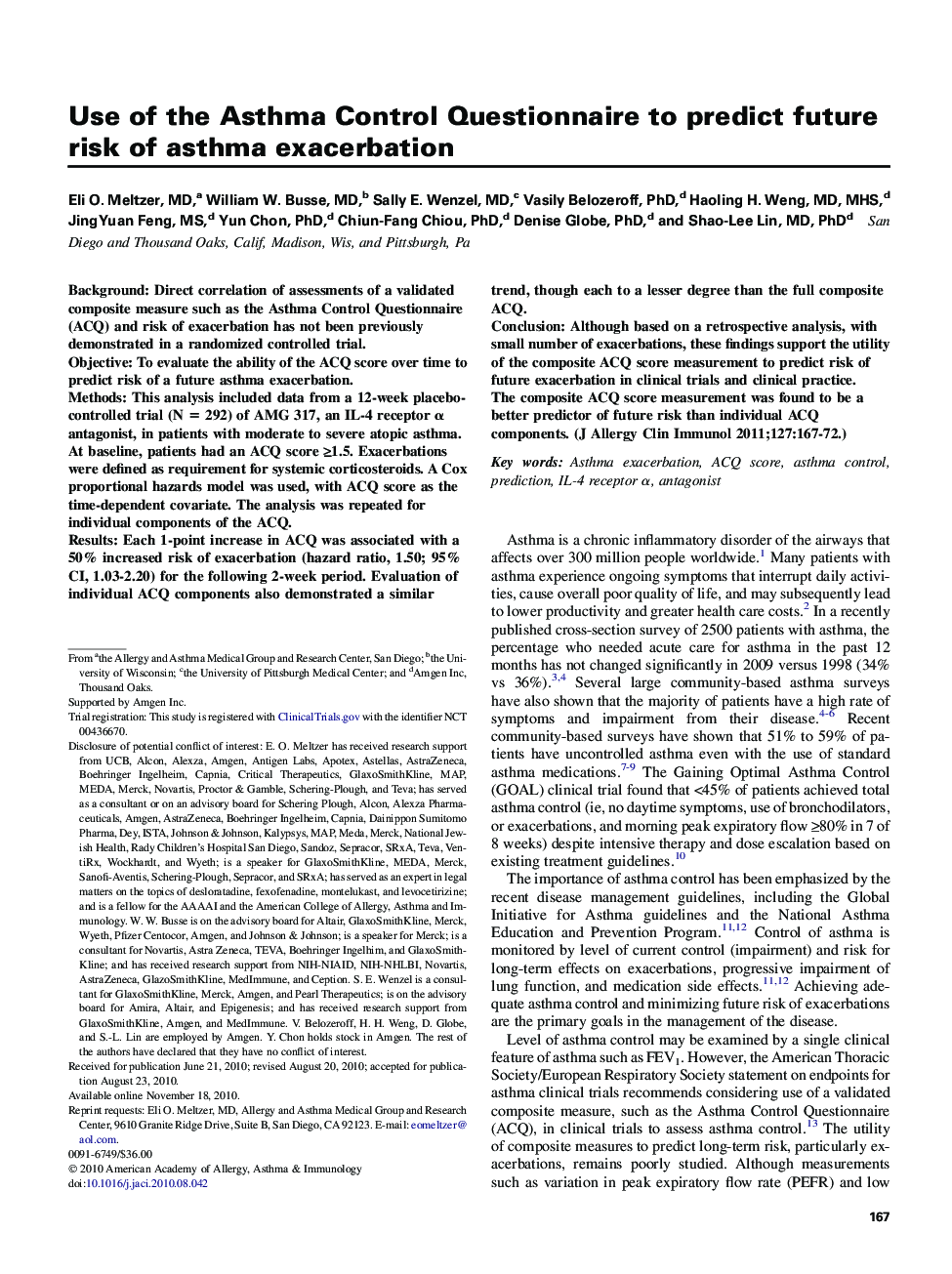| Article ID | Journal | Published Year | Pages | File Type |
|---|---|---|---|---|
| 3199609 | Journal of Allergy and Clinical Immunology | 2011 | 6 Pages |
BackgroundDirect correlation of assessments of a validated composite measure such as the Asthma Control Questionnaire (ACQ) and risk of exacerbation has not been previously demonstrated in a randomized controlled trial.ObjectiveTo evaluate the ability of the ACQ score over time to predict risk of a future asthma exacerbation.MethodsThis analysis included data from a 12-week placebo-controlled trial (N = 292) of AMG 317, an IL-4 receptor α antagonist, in patients with moderate to severe atopic asthma. At baseline, patients had an ACQ score ≥1.5. Exacerbations were defined as requirement for systemic corticosteroids. A Cox proportional hazards model was used, with ACQ score as the time-dependent covariate. The analysis was repeated for individual components of the ACQ.ResultsEach 1-point increase in ACQ was associated with a 50% increased risk of exacerbation (hazard ratio, 1.50; 95% CI, 1.03-2.20) for the following 2-week period. Evaluation of individual ACQ components also demonstrated a similar trend, though each to a lesser degree than the full composite ACQ.ConclusionAlthough based on a retrospective analysis, with small number of exacerbations, these findings support the utility of the composite ACQ score measurement to predict risk of future exacerbation in clinical trials and clinical practice. The composite ACQ score measurement was found to be a better predictor of future risk than individual ACQ components.
